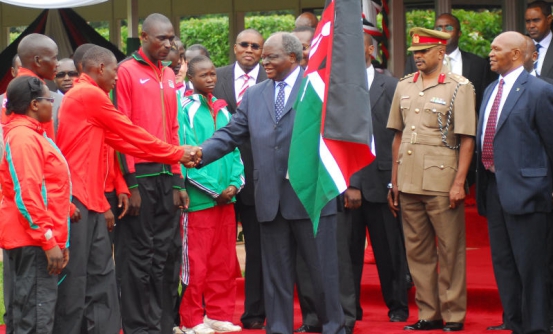×
The Standard e-Paper
Home To Bold Columnists

The ADC stands guard as the national athletics team receives the flag from former President Mwai Kibaki at State House Nairobi before the squad left the country to participate in the Olympic Games in London.
(PHOTO: COURTESY)